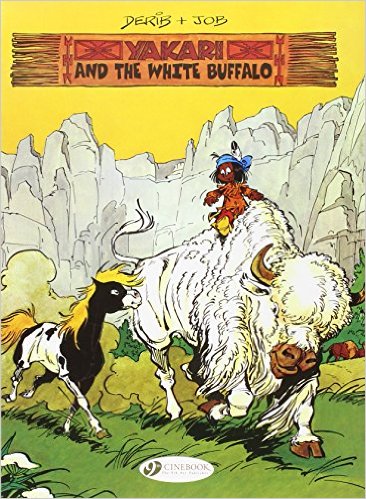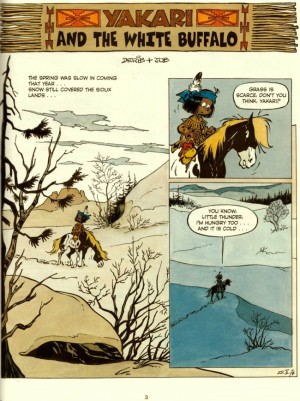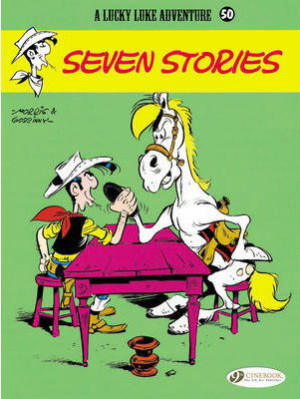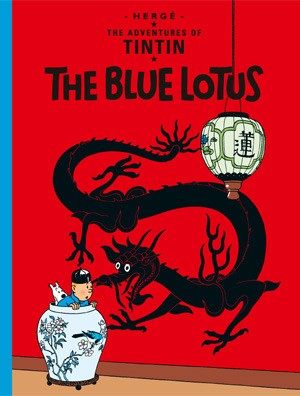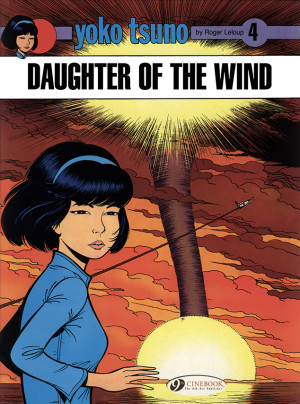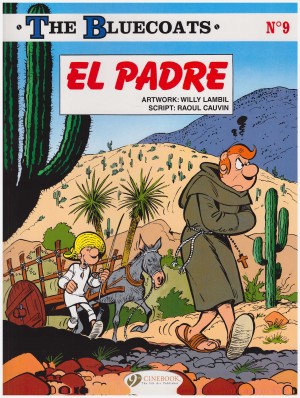Review by Jamie McNeil
In Yakari and Great Eagle we were introduced to Yakari, a young member of the Sioux tribe who learned he could speak to animals then befriended Little Thunder, a wild mustang that no-one else in his tribe has managed to ride. Yakari and the White Buffalo opens to artist and co-creator Derib’s beautifully illustrated winter scenes, the snow and ice overstaying its welcome. Yakari’s tribe is starving and the spring buffalo migration the Sioux relies on for food is late in coming. The tribal elders are concerned and move camp hoping to intercept the migration, when little Yakari dreams of a great white buffalo leading a herd and very soon Yakari and Little Thunder are off on an adventure to save their tribe.
The target audience is primary school boys, and Derib (Claude de Ribaupierre) and writer Job (André Jobin) know how to capture their attention with action scenes that would cause many a mother to hurriedly hide this book in case her little tyke should get any ideas. Job pens a wonderful plot of adventure, bravery and danger, paying a loving homage to the Native American culture both he and Derib are so fond of. There are stereotypes of the noble savage that Job plays on, but this can be ascribed to the book’s original 1970s publication. What is consistently evident is the respect paid to the culture and initiation rituals Yakari experiences.
The dialogue and plot is mystical, odd but perfectly suited to a story about a little boy who dreams and speaks to animals. It is charming, easy to read and easy to understand. The Sioux lore and mythology lends to its charm, remarkable for a story originally published in 1977. The detail that Derib applies to his work is incredible, right down to the scrawny and starving dogs, yet everything is against a relatively simple background of bright blue skies, rolling grass plains, thirsty deserts and rocky walls. There is life in the artwork, smoke rising from tipis in the frosty night, hunters dancing wildly around campfires and a stunning dream sequence that plays out gloriously over four pages. The frames are open, the scenery is beautiful, animals springing to life without losing their unique characteristics in a fine example of lovingly displayed anthropomorphism.
The print quality is not always brilliant, but good enough to see what wonderful work Derib produced to complement Job’s adventure-packed story. Yakari and the White Buffalo is elegantly beautiful in its simplicity, full of boyhood nostalgia. Adult boys will enjoy this too, if they manage to prise it from their son’s hands. The adventures continue in Yakari and the Beavers.
